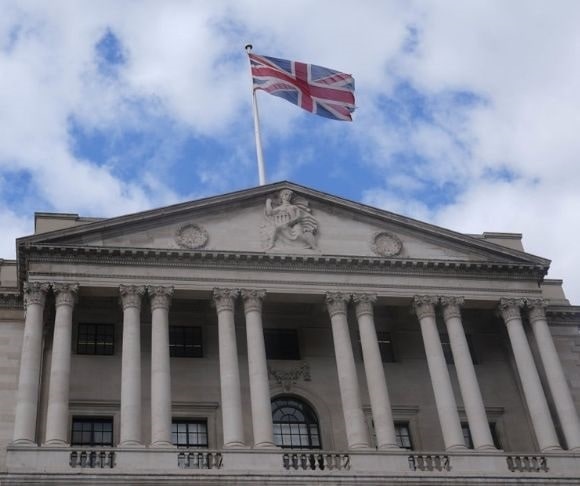The Bank of England (BoE) became the first major central bank to blink first during World War Tightening. The institution chose to ignite another round of quantitative easing, despite only recently launching a tightening cycle with the rest of its pals. The reason? Officials needed to bail out Prime Minister Liz Truss and prevent a further collapse of government bonds and the British pound. Who’s next? Investors are hoping the Federal Reserve and Chair Jerome Powell will be next to pivot.
In the Bank of England We Truss
 In a strange turn of events in the global monetary policymaking industry, the Bank of England announced that it will suspend its gilt selling next week and instead temporarily purchase long-dated bonds. Governor Andrew Bailey will turn on the printing presses and start buying gilts with a residential maturity of more than 20 years to the tune of £5 billion ($5.45 billion) per auction. This is a complete reversal of the BoE’s plan to tighten policy to curb rampant price inflation.
In a strange turn of events in the global monetary policymaking industry, the Bank of England announced that it will suspend its gilt selling next week and instead temporarily purchase long-dated bonds. Governor Andrew Bailey will turn on the printing presses and start buying gilts with a residential maturity of more than 20 years to the tune of £5 billion ($5.45 billion) per auction. This is a complete reversal of the BoE’s plan to tighten policy to curb rampant price inflation.
The purpose behind the sudden round of quantitative easing is to “restore orderly market conditions.” Yields on UK government bonds skyrocketed on Sept. 27, and the pound collapsed against the greenback, as investors panicked and fled in response to the new government’s deficit-financed mini-budget.
BoE officials will now monitor the “significant repricing” in the financial markets and immediately act if there is a “material risk” to stability on the London Stock Exchange (LSE).
“Were dysfunction in this market to continue or worsen, there would be a material risk to UK financial stability. This would lead to an unwarranted tightening of financing conditions and a reduction of the flow of credit to the real economy,” the Monetary Policy Committee said in a statement. “In line with its financial stability objective, the Bank of England stands ready to restore market functioning and reduce any risks from contagion to credit conditions for UK households and businesses.”

(Photo by Yui Mok/PA Images via Getty Images)
So far, yields have stabilized, although many of the debt instruments continue climbing. The 30-year bond rose 1.1 basis points, the 20-year bond jumped 3.5 basis points, and the ten-year yield edged up 0.3 basis point. The GBP/USD currency pair advanced about 1.3% to around 1.0900.
This is big news for British investors, but it is also a gigantic development for US traders. The Federal Reserve has repeatedly reiterated that it intends to raise interest rates and tighten policy to rein in 40-year high inflation. This attitude has tanked stocks, but now the leading benchmark indexes, from the Dow Jones Industrial Average to the Nasdaq Composite Index, have imbibed a dose of hopium. If the BoE is willing to tergiversate even slightly on its QT campaign, then why would the Fed not share this sentiment? Would the Eccles Building intervene if the US Treasury market saw the ten-year yield soaring more than 2% in a single session or the S&P 500 cratered to pandemic levels? Anything is possible.
That said, this is yet another instance whereby a powerhouse central bank has shed any last modicum of respectability. Although critics concur that the BoE eradicated most of its credibility, policymakers attempted to resurrect it through rate hikes and balance sheet sales. With the slightest hint of trouble, Bailey and his colleagues are coming to the prime minister’s rescue and enabling fiscal irresponsibility, much like their counterparts.
Kippers for Breakfast, Uncle Bailey?
Now that at least one central bank is panicking, investors may stop being agitated, alarmed, and anxious and start buying these 2020 lows. Is it time to slay the bears, or will the bulls still be fooled by the red cape? Antoine Bouvet, a senior rates strategist at ING, summed up the situation nicely in an interview with CNBC: “So you have a world where you have a recession and the BOE is trying to cool the economy with hikes, and on the other hand you have the Treasury that is trying to shield the economy from that recession and implementing fiscal measures that are inflationary.” No wonder the current state of the global economy can be described in a single word: chaos.




